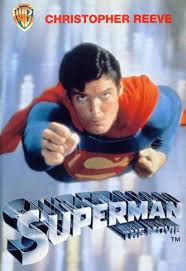Sometimes, addicts look and talk like dummies. But they can teach you some surprising things about yourself.
Mood music for this post: “Dumb” by Nirvana:
[youtube=http://www.youtube.com/watch?v=5CYC8w-qstc&hl=en_US&fs=1]
When you first walk into a 12-Step meeting, everyone in the room seems strange. People may be off the food, drugs and alcohol, but their speech may still be slurred. You dismiss them as dummies, failing to see you’re the same as them. They can teach you more than you can teach them.
Or so I’m discovering.
As I mentioned last week, I’m up to sponsoring three people in OA. It’s been a classic case of me feeling inconvenienced about helping someone else. The selfish side of me kicks in and I start getting pissed if someone has to call me five times a day to be talked off the ledge.
I may have found God and recovery, but I discover on a daily basis how much work I still have to do to become the kind of person I should be. Working toward redemption can be a bitch.
And yet, in a lot of little ways, I can see how I’m being pushed in the right direction despite myself.
The sponsoring is one piece of the puzzle. Being the jerk I’m capable of being, I found myself looking down on my sponsees at first. I had a stronger recovery than them, I felt. I was the teacher and they were the ones who couldn’t talk or walk straight. That’s a bullshit notion, of course. And I’m learning the lesson quickly.
The more I get to know my sponsees, the more I see what THEY have to teach ME. Two of them have been in and out of 12-Step programs for the better part of two decades. Hell, two decades ago all I cared about was getting wrecked in my basement in Revere.
They’ve been to the brink of death more than once at the hands of their multiple addictions. As the reader knows by now, binge eating is the main addiction I had to do something about, and I’ve enjoyed too much wine in the past, along with the pain pills prescribed to me for the constant back pain I used to have. But I have nothing on these folks. My other sponsee is somewhat new to the program, but he’s much more in tune with his Faith than I am at this point, so I’m learning from him, too.
I”m driving two of my sponsees to the Saturday-morning OA meeting these days, and one of them, a life-long resident of Haverhill, is teaching me a lot about the city. As we drive by all kinds of obscure buildings, he’ll tell me about how one used to be a shoe factory and another place used to be a bar he’d hang out in after 10-hour work days for two bucks an hour. He’s a big bear of a man with a heart of gold. Yesterday he left me the following voice mail:
“I just want to say two things to you: THANK YOU. I love you, buddy.”
This, from a guy who has only known me for a few weeks.
Just in case I needed any more convincing that sponsorship has become a necessary tool for me, the Gospel in Mass yesterday was The Parable of the Good Samaritan:
Luke 10:30-37: Jesus answered, “A certain man was going down from Jerusalem to Jericho, and he fell among robbers, who both stripped him and beat him, and departed, leaving him half dead. By chance a certain priest was going down that way. When he saw him, he passed by on the other side. In the same way a Levite also, when he came to the place, and saw him, passed by on the other side. But a certain Samaritan, as he traveled, came where he was. When he saw him, he was moved with compassion, came to him, and bound up his wounds, pouring on oil and wine. He set him on his own animal, and brought him to an inn, and took care of him. On the next day, when he departed, he took out two denarii, and gave them to the host, and said to him, ‘Take care of him. Whatever you spend beyond that, I will repay you when I return.’ Now which of these three do you think seemed to be a neighbor to him who fell among the robbers?” He said, “He who showed mercy on him.” Then Jesus said to him, “Go and do likewise.”
Father Michael Harvey expanded on what the Gospel means in his Homily. This was the children’s Mass, so he broke it down in terms that the dumbest among us adults could understand. His last line seemed to be pointed straight at me:
“Giving help was not convenient for the Samaritan. One might say it was a pain and that this is what it’s like when someone proves to be very needy. God puts these people in our lives because we need them as much as they need us.”
So I’m learning.
Yesterday afternoon, a couple close cousins — Sharon and Martha — came to visit us and we were sitting out back, talking about this blog. Sharon apparently keeps up on it more than Martha does, and Sharon said something like, “I tell Martha all the time — you can learn a lot from Bill.”
To which I chuckled, remembering the old commercials with the crash test dummies, and said, “Yeah, you can learn a lot from a dummy.”







